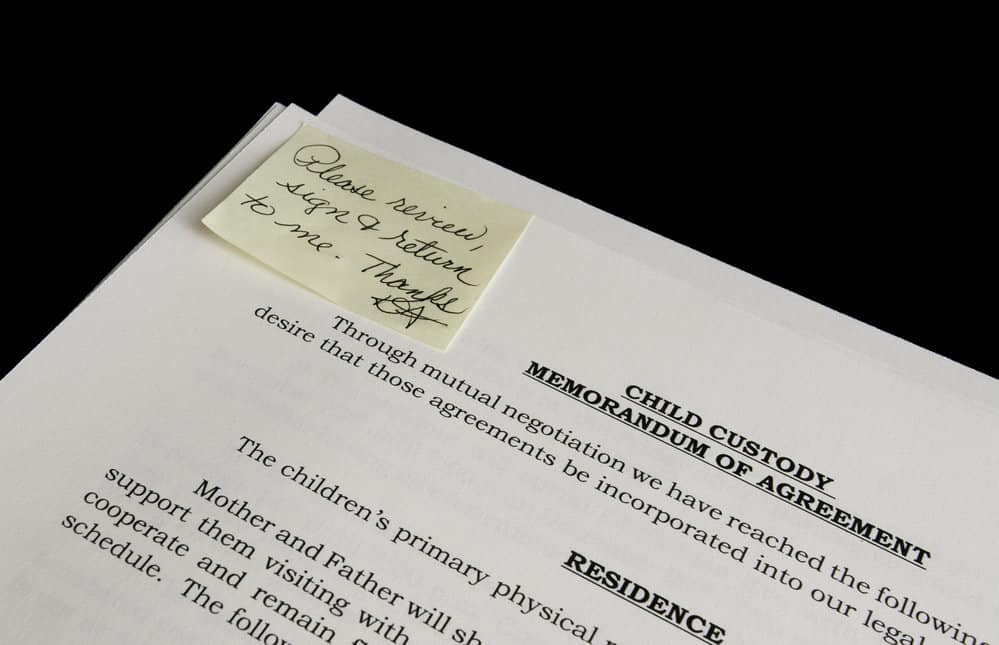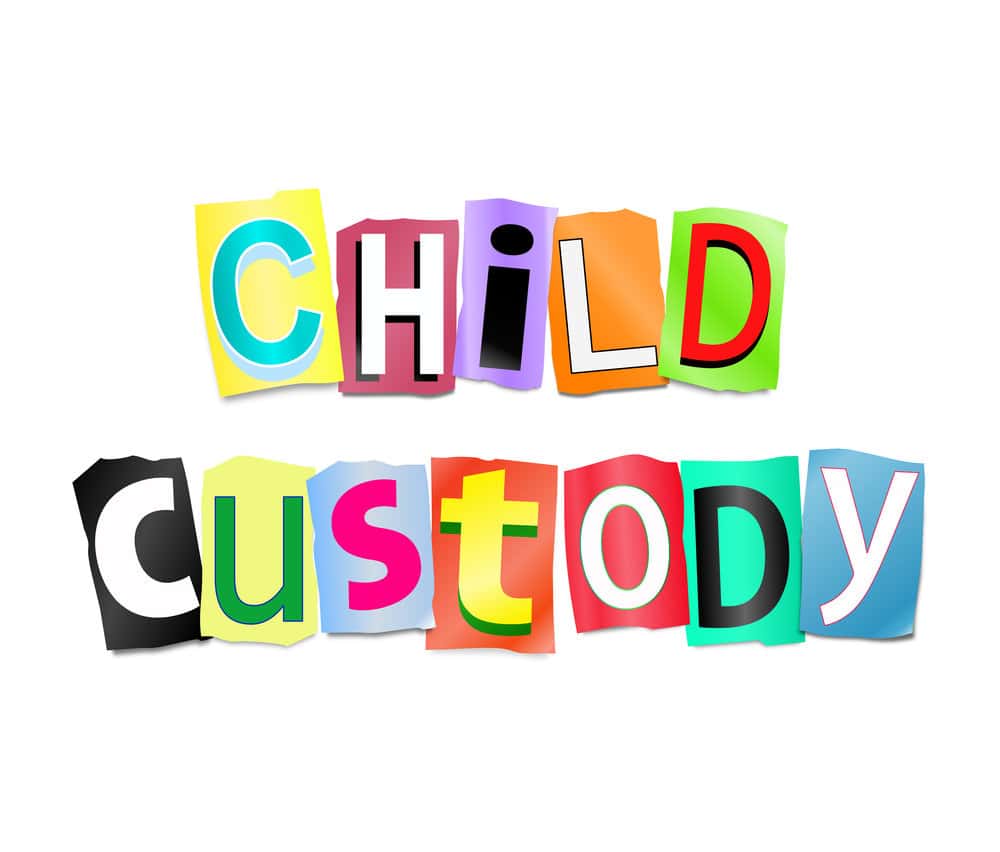The Uniform Child Custody Jurisdiction and Enforcement Act (UCCJEA) is a uniform state law designed to simplify and standardize the resolution of custody disputes between different states. Its primary purpose is to establish clear jurisdictional guidelines for courts in the United States when dealing with custody matters involving parties from multiple states. By doing so, the UCCJEA prevents conflicting rulings, reduces legal costs for families, and prevents unnecessary delays in resolving custody disputes.
One of the most critical aspects of the UCCJEA is the transfer of jurisdiction between states. This becomes crucial when one party seeks to modify a custody order in a different state from where the original order was established or when a parent relocates to another state. Understanding the process of transferring jurisdiction and the factors that courts consider when determining which state has jurisdiction to make custody decisions is essential for parents and legal professionals.
Key Takeaways
- The UCCJEA aims to streamline custody disputes involving parties from multiple states
- Jurisdiction transfer under the UCCJEA ensures that clear guidelines are in place for custody decisions
- The transfer process is especially important when a parent relocates or when a custody order is modified
 Understanding UCCJEA
Understanding UCCJEA
Definitions and Key Terms
The Uniform Child Custody Jurisdiction and Enforcement Act (UCCJEA) is a model act drafted by the Uniform Law Commission to create a consistent state law for determining jurisdiction in child custody cases. Adopted by all states except Massachusetts, it aims to prevent jurisdictional conflicts and provide clear guidelines for courts dealing with interstate custody cases.
When dealing with child custody matters under the UCCJEA, it is important to understand some key terms:
- Jurisdiction: Refers to the authority of a court to make legal decisions and judgments in a case. Under the UCCJEA, this authority is determined by several factors, such as the child’s home state.
- Physical custody: The right and responsibility of a parent or person acting as a parent to provide a home and care for the child.
- Legal custody: The authority to make major decisions affecting the child’s welfare, such as education, religion, and medical care.
- Home state: Defined as the state where the child has resided with a parent or person acting as a parent for at least six consecutive months immediately before filing a child custody case. If the child is under six months old, the home state is where the child has lived since birth.
- Person acting as a parent: An individual, other than a biological or adoptive parent, who has physical custody of a child and has either been awarded custody by a court or claims a right to custody based on the individual’s day-to-day care for the child.
The UCCJEA specifically addresses custody and visitation orders. It applies to situations where both parents are alive, as well as cases involving the death of one or both parents. The UCCJEA gives priority to the child’s home state when determining which court has jurisdiction over a child custody case.
Remember, the main goal of the UCCJEA is to provide a consistent and clear framework for courts to resolve interstate child custody disputes. Understanding these definitions and key terms is crucial in navigating your custody case involving multiple states.
Jurisdiction Issues under UCCJEA
Initial Jurisdiction
To begin with, it is important to understand the concept of initial jurisdiction in the context of the Uniform Child Custody Jurisdiction and Enforcement Act (UCCJEA). Initial jurisdiction refers to the authority of a court to decide a child custody case for the first time. To establish initial jurisdiction, a court needs to determine the child’s “home state,” which is the state where the child has lived with a parent or a person acting as a parent for at least six consecutive months before the start of the custody proceeding.
The UCCJEA prioritizes home state jurisdiction when deciding which court has initial jurisdiction. In cases where no court has home state jurisdiction or where more than one state could be considered the child’s home state, the UCCJEA provides additional criteria like significant connection and a more appropriate forum to help determine which court has initial jurisdiction.
Continuing Jurisdiction
Continuing jurisdiction is the ability of a court to maintain its authority over a child custody case even after the initial decision has been made. Under the UCCJEA, a court that has made an initial child custody determination generally retains continuing jurisdiction until it either:
- determines that neither the child nor the child’s parents have a significant connection with the state or
- determines that the child and the child’s parents no longer reside in the state.
In this way, the UCCJEA encourages stability and consistency for the child by preventing multiple states from issuing conflicting child custody orders.
Exclusive, Continuing Jurisdiction
The concept of exclusive, continuing jurisdiction is crucial to understanding jurisdiction issues under the UCCJEA. Once a court has established proper jurisdiction and made an initial custody determination, it has exclusive, continuing jurisdiction over the case. This means that as long as the court retains continuing jurisdiction, no other court can modify the existing custody order.
Exclusive, continuing jurisdiction aims to prevent conflicting custody orders and forum shopping, seeking a court that may be more sympathetic to one’s case or offer a more advantageous outcome.
The UCCJEA addresses several jurisdiction-related concerns in child custody cases, such as initial, continuing, and exclusive, continuing jurisdiction. By clarifying these jurisdiction issues, the act creates a more stable and consistent legal framework for children and their parents, promoting the child’s best interests.
Transfer of Jurisdiction in UCCJEA
Process of Transfer
Regarding the Uniform Child Custody Jurisdiction and Enforcement Act (UCCJEA), transferring jurisdiction between states can be necessary to resolve child custody disputes. This transfer usually occurs when the child’s home state changes or the court in the original jurisdiction determines that another state would be the most appropriate place to handle the case.
To initiate the transfer process, you or your attorney must file a motion in the original state’s court requesting the transfer of jurisdiction. Before making a decision, the court will consider factors such as the child’s best interests, the child’s and parents’ connection to each state, and any potential safety risks.
Once the court in the original jurisdiction agrees to relinquish jurisdiction, the receiving state must also accept jurisdiction over the case before it can proceed. This typically involves corresponding with the new state’s court, providing the necessary documents, and following their procedures for acceptance of jurisdiction.
Out-of-State Transfers
When a child custody dispute crosses state lines, the UCCJEA is crucial in determining the appropriate venue for resolving the matter. The Act provides a clear framework for out-of-state transfers, ensuring that jurisdictional issues are resolved consistently throughout each state.
Under the UCCJEA, a child’s home state generally has priority regarding jurisdiction. The home state is the state where the child has lived with a parent for at least six consecutive months immediately before a child custody proceeding begins. However, if the child is under six months old, the home state is where the child has lived since birth.
When no state meets the definition of the child’s home state or another state declines to exercise jurisdiction due to inconvenient forum grounds or the child’s safety, the UCCJEA allows jurisdiction to be assigned based on significant connections and evidence in a state.
It is important to note that during an out-of-state transfer, the UCCJEA also provides temporary emergency jurisdiction, enabling a court to make temporary custody decisions in urgent situations where the child’s safety is at risk.
Remember to keep in mind the complexity of navigating the UCCJEA transfer process, and consider consulting with an experienced family law attorney to ensure your child’s best interests are properly protected.
 Modification of Child Custody Order
Modification of Child Custody Order
Modification Procedures
When modifying a child custody order, you should understand the procedures involved. You may need to follow several steps, depending on your jurisdiction. You’ll typically need to file a petition or motion to modify custody and be prepared to provide evidence supporting your request for a change. This can include demonstrating a significant change in circumstances or showing that the modification will be in the child’s best interest.
Remember that the Uniform Child Custody Jurisdiction and Enforcement Act (UCCJEA) may play a role, especially if your child custody case involves multiple states. The UCCJEA helps clarify which state has jurisdiction to make child custody decisions and provides guidelines for transferring jurisdiction between states. Ensure that the UCCJEA has been adopted in your state (all states except Massachusetts have adopted the Act).
Effects of Modification
Modifying a child custody order can have various effects on both the parents and the child. Some of the potential consequences may include:
- Changes in the parenting schedule: The child’s time with each parent may be adjusted, which could involve changes in the days or hours spent with each parent.
- Changes in the child’s residence: The child may be required to relocate to a different home, city, or even state, impacting their daily routines, friendships, and school environment.
- Changes in decision-making authority: The modification may alter how much input each parent has in making important decisions about the child’s upbringing, such as education, healthcare, and extracurricular activities.
It’s essential to consider how a modification will impact the well-being and stability of your child. While changes in custody arrangements may be necessary in some situations, it’s crucial to consider the child’s best interests and the potential implications of any adjustments.
UCCJEA and Family Law
The Uniform Child Custody Jurisdiction and Enforcement Act (UCCJEA) plays a significant role in family law cases involving child custody matters. This act helps establish which court has jurisdiction to decide the custody issues arising from divorce, separation, paternity, and child support. Let’s delve deeper into how the UCCJEA affects these aspects of family law.
Divorce and Separation
Determining the appropriate court to handle child custody matters is crucial during a divorce or separation. The UCCJEA dictates that the child’s “home state” has exclusive and continuing jurisdiction over the custody case. The home state is defined as the state where the child has lived with a parent for six consecutive months before the commencement of the proceeding or since birth if the child is younger than six months. This helps ensure consistency in custody decisions and reduces the risk of conflicting orders from different states.
Paternity Issues
When paternity disputes arise, the UCCJEA plays a role as well. In cases where the child’s parentage is being determined, the UCCJEA ensures that jurisdiction for custody decisions remains in the child’s home state. This helps provide a stable legal environment for the child to ensure their best interests are considered in custody decision-making.
Child Support
Although the UCCJEA primarily focuses on child custody and visitation issues, it can indirectly affect child support decisions. Since the UCCJEA helps establish which court has jurisdiction over custody matters, it also indirectly determines the court that has jurisdiction over child support issues. After all, child support is typically decided in conjunction with custody arrangements. By providing clarity on jurisdiction for custody, the UCCJEA can foster a more efficient and consistent process for deciding child support.
In summary, the UCCJEA plays a vital role in family law cases involving child custody, from divorce and separation to paternity and child support. Its goal is to provide a stable legal environment for children and ensure their best interests are met throughout custody proceedings.
Enforcement of Custody and Visitation Orders
When dealing with custody and visitation orders, it is crucial to understand the enforcement procedures under the Uniform Child Custody Jurisdiction and Enforcement Act (UCCJEA). Let’s look at how this process works to ensure that you are well-versed in your role as a parent.
One way the UCCJEA helps to ensure the enforcement of custody and visitation orders is through the use of out-of-state orders. If you or the other parent moves to a different state, you may need to register and enforce your custody and visitation orders in the new state. To do this, you’ll have to submit an application for the registration of the out-of-state order along with an affidavit and the required Notice of Request.
Under the UCCJEA, state courts are required to enforce child custody and visitation orders made in a foreign country, as long as the foreign court adhered to the jurisdictional standards of the UCCJEA and both parties were given adequate notice and an opportunity to be heard. Limited defenses can be applied in these cases.
Keep in mind that, except for Massachusetts, all states in the U.S. have adopted the UCCJEA. If you face jurisdictional issues regarding enforcing your custody and visitation order, the UCCJEA can provide guidance and a framework for resolving the matter.
A key feature of the UCCJEA is that it aims to avoid conflicting orders and jurisdictional disputes between states. Therefore, if a custody or visitation order has been issued in one state and you are seeking enforcement in another, the courts in both states should communicate and cooperate to reach an agreement in the child’s best interest.
In conclusion, getting familiar with the enforcement of custody and visitation orders under the UCCJEA can be helpful to understand your rights and obligations as a parent dealing with interstate and international matters. The uniformity of this act across states ensures that your child’s best interests are always upheld, regardless of where you live.
UCCJEA and Domestic Violence
The Uniform Child Custody Jurisdiction and Enforcement Act (UCCJEA) plays a crucial role in protecting victims of domestic violence and their children. This legislation is designed to provide clarity and consistency in determining jurisdiction in interstate child custody cases, ensuring that courts can efficiently resolve disputes and protect the welfare of the children involved.
In cases where domestic violence is a significant factor, the UCCJEA provides extra safeguards to help protect the victims and their children. For instance, Section 201(a) of the UCCJEA establishes that a state can claim jurisdiction in a custody case if it is the child’s home state for six months before the court proceedings. This helps ensure stability and prevent parents from moving to different states to avoid unfavorable custody decisions.
In situations where the safety of a parent and child is at risk because of domestic violence, the UCCJEA also offers the option of temporary emergency jurisdiction. This provision allows a court in a state where the parent and child have fled to make a temporary custody order to protect against immediate threats of harm, even if the six-month residency requirement has not been met. This can provide much-needed safety and security for families escaping dangerous situations.
You can also request protection from domestic violence through protective or restraining orders. These orders are enforceable across all states, ensuring victims and their children maintain safety when moving or relocating to escape abuse.
In summary, the UCCJEA has provisions like home state jurisdiction, temporary emergency jurisdiction, and the enforcement of protective orders, all designed to offer additional layers of protection for domestic violence victims and their children. By understanding these elements and your rights under the UCCJEA, you can better navigate the legal system to seek the safety and well-being of you and your family.
 Role of Legal Counsel
Role of Legal Counsel
Paralegal Assistance
When dealing with a UCCJEA transfer of jurisdiction, your legal counsel plays a crucial role in representing your best interests and ensuring the process goes smoothly. They can help you understand the intricacies of the law and guide you toward making informed decisions.
A paralegal can provide invaluable assistance to your legal counsel. They are typically responsible for conducting research, drafting documents, and organizing information relevant to your case. By assisting with these tasks, paralegals enable your legal counsel to focus on providing top-notch representation and advice.
You and your legal counsel may communicate frequently throughout the process, discussing your objectives and concerns. Your legal counsel will inform you about their findings and any potential obstacles they believe must be addressed. They will also work to prepare you for any court appearances or meetings that you may be required to attend.
When dealing with child custody cases that span multiple states or even countries, it’s essential to understand the interplay between federal and state laws. The Uniform Child Custody Jurisdiction and Enforcement Act (UCCJEA) provides a vital framework for determining jurisdiction in situations involving multiple states or countries. However, federal laws such as the Parental Kidnapping Prevention Act (PKPA) and the Uniform Interstate Family Support Act (UIFSA) also impact interstate custody disputes.
The UCCJEA was created in 1997 to help reconcile differences between the earlier Uniform Child Custody Jurisdiction Act (UCCJA) and federal laws like the PKPA. It aims to establish a consistent set of jurisdictional rules for custody cases across the states except Massachusetts. The main goal of the UCCJEA is to prevent forum shopping, which refers to seeking a more favorable custody outcome by choosing a different jurisdiction.
The Federal Parental Kidnapping Prevention Act (PKPA) also plays an important role in UCCJEA cases. The PKPA establishes rules for enforcing and modifying child custody orders across state lines, ensuring that orders made according to the UCCJEA are honored in other states. This federal law guarantees the consistency and enforceability of child custody decisions throughout the United States.
The Uniform Interstate Family Support Act (UIFSA), another crucial piece of federal legislation, complements the UCCJEA in child support matters. UIFSA governs the enforcement and modification of child support orders between states, promoting cooperation among state-level child support agencies. This act ensures that child support issues are resolved efficiently and that the appropriate support orders are in place even when parents and children live in different states.
In summary, the UCCJEA provides a consistent framework for determining jurisdiction in custody cases involving multiple states, while federal laws like the PKPA and UIFSA ensure the enforceability and modification of custody and support orders across state lines. By understanding the UCCJEA and the role of federal laws in interstate custody disputes, you can better navigate these complex legal situations and safeguard the child’s best interests.
Frequently Asked Questions
What is the process for transferring jurisdiction under the UCCJEA?
Transferring jurisdiction under the UCCJEA typically begins when a party files a motion or petition in the court requesting the transfer. You must provide details about the child’s current home state and establish that the current court has jurisdiction. The court will then communicate with the other jurisdiction to determine which state has the most appropriate jurisdiction. The transferring court will decide, and the case will move to the new jurisdiction if granted.
How does temporary emergency jurisdiction work?
Temporary emergency jurisdiction is an exception to the UCCJEA’s general rules. When the child is in immediate danger, a court can exercise temporary emergency jurisdiction to protect the child, even if it doesn’t have home state jurisdiction. Once the emergency is resolved, the court will communicate with the home state court to determine the best action for the long-term custody determination.
What factors are considered in determining unjustifiable conduct?
Unjustifiable conduct refers to actions that interfere with the UCCJEA’s purpose of promoting cooperation and preventing jurisdictional disputes. Factors considered in determining unjustifiable conduct may include false representations, wrongful withholding of the child, abduction, or exposing the child to danger. If the court finds unjustifiable conduct occurred, it can decline to exercise jurisdiction and direct the parties to an appropriate court.
How do UCCJEA states handle competing jurisdiction claims?
The UCCJEA establishes a hierarchy for determining jurisdiction in cases with competing claims. Home state jurisdiction is prioritized, followed by significant connections jurisdiction and the remaining criteria. The courts in the competing states will communicate with each other to determine which state is the correct jurisdiction for the child custody case. This process helps avoid multiple custody orders and promotes cooperation between states.
What changes were made from UCCJA to UCCJEA?
The UCCJEA replaced the UCCJA to address problems with ambiguous language and inconsistent interpretations. Notable changes made in the UCCJEA include a clearer definition of home state jurisdiction, an emphasis on exclusive continuing jurisdiction, and the implementation of additional provisions regarding handling emergency jurisdiction situations. These changes aim to reduce jurisdictional disputes further and streamline the process for child custody cases.
Can a state decline jurisdiction under the UCCJEA?
Yes, a state can decline jurisdiction under the UCCJEA in specific circumstances, such as jurisdiction based on unjustifiable conduct, inconvenient forums, or if there’s a more suitable jurisdiction based on the best interests of the child. The court will consider the facts and communicate with other jurisdictions before declining or accepting jurisdiction.






